Does Coolant Affect AC? Uncover the Performance Impact of Coolant
Unraveling Coolant’s Effect on AC Systems
Ever wondered, “Does coolant affect AC?” You may just be onto a crucial piece of the puzzle if your car’s AC isn’t kicking out that crisp, cool breeze you crave. As an HVAC technician with over two decades under the hood, I can tell you that coolant is more of a silent player in this game, with its performance directly impacting that of your car’s AC system.
In this eye-opening article, we’ll be navigating the labyrinth of your car’s engine and AC system, highlighting how coolant’s role could just be the determinant of whether you’re comfortable and cool or hot and bothered during your drive. Understanding this underplayed relationship could save you money – not just on those hefty repair bills, but also on a melted ice cream cone or two!
So buckle up, as we hit the road to reveal these unexpected connections between coolant and your car’s AC system, ensuring a smooth ride for you and your car.
Introduction to Coolant and AC Systems
Imagine coolant and your car’s AC system working hand in hand, yet maintaining their unique roles. This section will explore how these two vital components operate and their relationship.
What is Coolant?
- Coolant, also known as antifreeze: This fluid is a lifeline for your vehicle, playing a crucial role in maintaining engine temperature by dissipating heat. It’s like having a trusted friend ensuring your engine stays cool under stress.
- Prevents overheating and freezing: During those hot summer drives, coolant helps your engine avoid overheating. In winter, it steps up to prevent the engine from freezing, much like a year-round guardian.
- Circulates through the engine: Coolant travels through the engine, absorbing heat and releasing it through the radiator, keeping the engine temperature stable and balanced.
How Does an AC System Work?
- Heat removal and expulsion: The AC system works tirelessly to remove heat from your car’s cabin and expel it outside, ensuring you enjoy a cool and comfortable ride.
- Key components: The compressor, condenser, expansion valve, and evaporator are the fantastic four, managing the refrigerant’s journey through your AC system.
- Refrigerant circulation: Just like a courier, the refrigerant carries heat from inside the cabin and disposes of it outdoors, making sure you stay cool.
- Cooling fan and radiator: These unsung heroes are essential for dissipating heat effectively within the AC system, working behind the scenes to ensure a breezy environment.
The Relationship Between Coolant and AC Performance
- Interconnected yet separate systems: Although coolant and the AC system operate independently, they support each other. Proper vehicle cooling influences overall AC performance.
- Efficient engine cooling: Keeping your coolant levels in check ensures an optimized engine temperature, making it easier for the AC to expel excess heat, especially on scorching days.
- Cooling fan’s dual role: The cooling fan is a multi-tasker, crucial for maintaining both engine cooling and AC efficiency. It helps both systems run smoothly, ensuring your car’s performance is top-notch.
Direct and Indirect Effects of Coolant on AC Performance
Does Coolant Directly Affect the AC?
When it comes to your vehicle systems, the direct link between coolant and the air conditioning (AC) system is pretty limited. Coolant, often called antifreeze, doesn’t play a role in the AC’s refrigerant cycle. Instead, it flows through the engine’s cooling system while your AC relies on a separate closed-loop system that uses refrigerant to keep your cabin cool.
Your AC’s performance hinges on components like the compressor, condenser, expansion valve, and evaporator. These parts work together to move heat from inside your vehicle to the outside world. So, while both systems might share some operational features, they don’t directly interact mechanically.
Indirect Effects of Coolant on AC Functioning
Even without a direct mechanical connection, the coolant system can have an indirect impact on AC performance. One significant way this happens is through engine temperature regulation. If your engine coolant is low, the engine might overheat. Modern vehicles often come with safety systems that shut off the AC compressor when the engine gets too hot to prevent further damage. This immediate AC shutdown can make your cabin warmer, impacting your comfort.
Additionally, a well-functioning cooling fan is crucial for both the engine cooling system and the AC system. This fan helps dissipate heat from the engine coolant and also cools the AC system’s condenser. If the cooling fan fails, it can cause higher pressures within the AC system, leading to inconsistent cooling or even safety shutdowns due to excessive pressure.
In short, while the coolant system and the AC system operate separately, they are interdependent to a notable extent. Keeping your coolant levels in check and ensuring your cooling fan is working properly can prevent these indirect issues, helping your engine and AC systems run optimally.
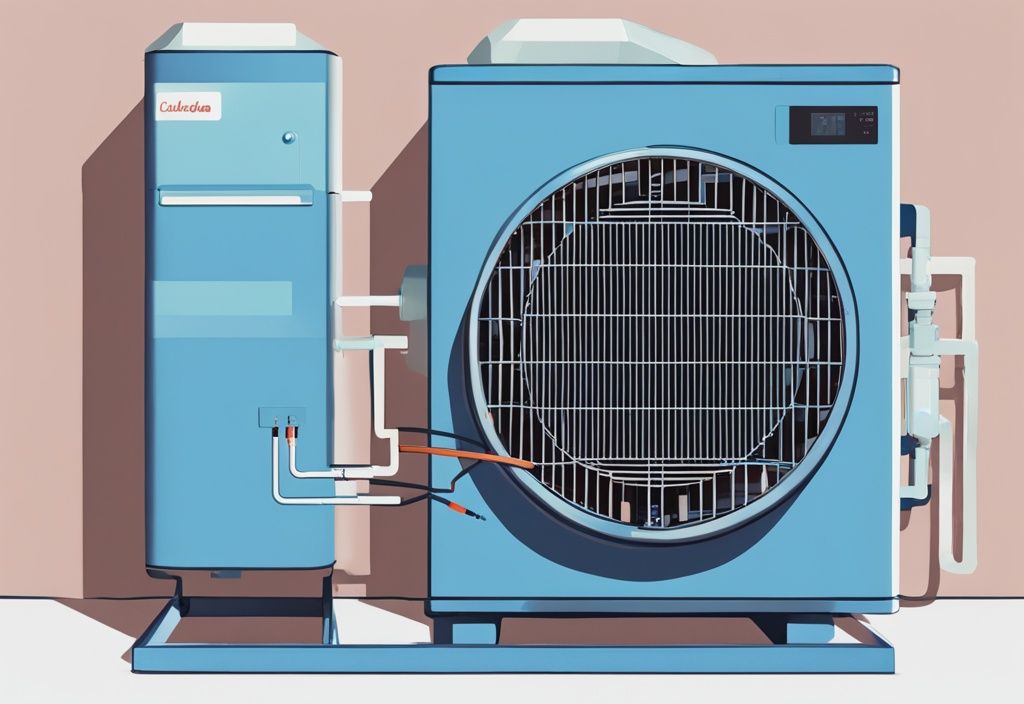
Common AC Issues Related to Coolant Levels
When it comes to keeping your vehicle cool, understanding the interplay between your coolant levels and the AC system can save you a lot of trouble. Let’s dive into the most common issues you might face and how they are all connected.
Low Coolant Levels and Engine Overheating
- Running low on coolant? Not only can this cause your engine to overheat, but many vehicles, including those from BMW, Volkswagen, and Audi, have a built-in safety feature. If the engine overheats, the AC compressor can automatically shut down to prevent damage.
- This safety measure protects your engine but also results in a sudden loss of cabin cooling, clearly showing how coolant and AC performance are intertwined.
Frequent Compressor Shut-Offs
- Wondering, “does coolant affect AC?” Absolutely. When coolant levels are too low, temperature control fails, causing the engine to overheat.
- In response, the AC compressor may shut off frequently to guard against engine damage. It’s this delicate dance between engine cooling and air conditioning that often disrupts your comfort.
- To make matters worse, a bad cooling fan can crank up the system’s high side pressure, leading to more frequent compressor shut-offs.
Intermittent Cool Air or Warm Air Issues
- Ever experienced cool air turning warm all of a sudden? These fluctuations are often linked to a faulty cooling fan.
- Even if your refrigerant levels are fine, an ineffective cooling fan can’t dissipate heat properly, causing inconsistent climate control.
- Blockages within the AC system can also play spoiler, impacting overall cooling efficiency and leaving you puzzled about why your AC isn’t performing well.
High-Pressure Build-Up and Blockages
- So, does coolant affect AC performance? While not directly, it does have an impact. Blockages can cause high pressure to build up in the AC system, which can trick you into thinking it’s a coolant problem.
- High pressure can force the compressor to shut down to avoid damage, showing symptoms similar to coolant-related issues.
- Using diagnostic tools like pressure gauges at different engine speeds, especially around 2000 RPM, can quickly reveal blockages so you can get them fixed.
Electrical Failures Related to Coolant
- Low coolant levels can also indirectly mess with your AC’s electrical system, leading to erratic or non-working air conditioning.
- Most vehicles have computers that detect these issues and may shut down the AC as a precaution.
- Keeping your coolant levels in check prevents these disruptions and ensures your AC runs smoothly, keeping you cool all summer long.
Diagnosing and Fixing Coolant-Related AC Problems
Troubles with your AC can sometimes be tied to your vehicle’s coolant system. Let’s walk through some steps to pinpoint and resolve these issues, ensuring your AC functions seamlessly.
Checking AC Pressures
One of the first things to do when diagnosing AC problems is to check the AC pressures at around 2000 RPM, not just at idle. This method captures readings that reflect normal driving conditions. Accurate pressure readings can help uncover issues like refrigerant leaks or compressor inefficiencies, which might be indirectly connected to your engine’s cooling system. Remember, everything’s a bit more intense when you’re cruising down the highway.
Identifying Coolant Leaks
Signs of Coolant Leaks
- Warm air from the AC: If your AC starts blowing warm air, it could signal a coolant leak that’s causing the engine to overheat and, in turn, impacts the AC performance.
- Higher energy bills: Notice a sudden spike in your energy costs? It could be a sign of system inefficiencies due to leaks.
- Hissing noise: A hissing sound from the AC unit can be a tell-tale sign of a coolant leak.
- Puddles under the vehicle: Unusual puddles beneath your car? They might be leaking coolant.
- Low coolant reservoir levels: If the coolant levels in the reservoir keep dropping, you might have a leak on your hands.
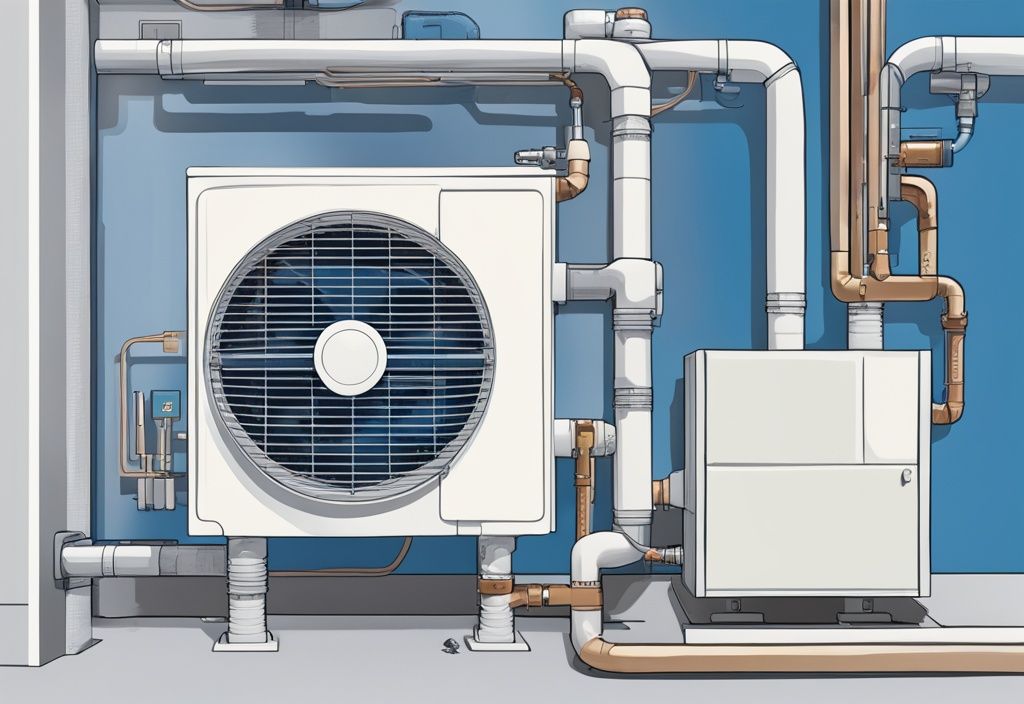
Flushing the System and Recharging Coolant
Using a Charging Machine
To maintain optimal coolant levels, use a charging machine to flush the system and recharge with the correct amount of coolant. This procedure rids your system of old, contaminated coolant and replaces it with fresh fluid. It’s essential for effective engine cooling and, by extension, keeps your AC system running smoothly.
Maintaining Proper Coolant Levels
Regular monitoring and maintenance of coolant levels are crucial to prevent engine overheating, which can affect your AC’s performance. Stick to the manufacturer-recommended coolant for the best results. Regular checks and top-offs can help sustain both the engine’s and AC’s optimal performance.
Consulting a Mechanic for Persistent Issues
If problems persist, it’s wise to consult a professional mechanic. Persistent issues often need expert eyes and hands to get to the root cause and provide a lasting fix. A skilled mechanic can identify and solve underlying problems, ensuring your AC and engine cooling system operate flawlessly.
Preventing Coolant-Related AC Problems
Preventing issues related to your car’s AC and coolant system can save you from a lot of headaches down the road. Here’s a breakdown of essential tips to keep everything running smoothly.
Regular Maintenance Tips
- Inspect Coolant Levels: Make it a habit to check the coolant levels in your vehicle’s reservoir. Low coolant can lead to engine overheating, which has a knock-on effect on your AC’s performance.
- Periodic Radiator Flushes: It’s wise to perform radiator flushes periodically to eliminate debris and old coolant. A clean cooling system is more efficient, helping to maintain optimal temperatures for both your engine and AC. If you drive a GMC Acadia, make sure to read about the GMC Acadia air conditioner recall to stay informed.
- Cooling Fan Functionality: Check that the cooling fan is working correctly. A malfunctioning fan won’t dissipate heat properly, potentially causing issues for both your engine and AC system.
Manufacturer-Recommended Coolant
- Use Manufacturer-Recommended Coolant: Always go for the coolant your vehicle’s manufacturer recommends. Using the right coolant ensures everything works harmoniously, as different coolants come with distinct properties.
- Efficiency and Eco-Friendliness: There are coolants that are both efficient and environmentally friendly. Opting for an eco-friendly coolant can reduce your environmental impact while keeping your AC and engine cooling systems in top shape.
Radiator and Cooling Fan Maintenance
- Regular Radiator Cleaning: Keep your radiator clean to avoid blockages that can hinder coolant flow. A clean radiator ensures your cooling system operates efficiently, indirectly benefiting your AC’s performance.
- Cooling Fan Inspection: Regularly inspect the cooling fan. If it’s not functioning properly, replace it immediately. A properly working fan is critical for maintaining optimal temperatures for both your engine and AC.
By sticking to these maintenance tips and keeping your coolant levels in check, you can help prevent potential issues related to your AC system’s performance. A bit of attention now can save you from major problems down the line.
Environmental Considerations for Coolant
Recycling and Disposing of Coolant Properly
When it comes to ensuring your coolant doesn’t harm our environment, it’s crucial to dispose of or recycle used coolant properly. Many coolants are indeed toxic and need to be treated as hazardous waste. Here’s the lowdown on how you can handle coolant responsibly:
- Collect Used Coolant: Always collect your used coolant in a secure container to prevent spills.
- Handle as Hazardous Waste: Since coolants contain harmful chemicals, treat them as hazardous waste until you can dispose of them correctly.
- Use Recycling Centers: Take the collected coolant to an approved recycling or hazardous waste disposal center.
- Seek Professional Help: If you’re unsure about handling and disposing of the coolant, find a professional to ensure it’s done safely.
Advancements in Eco-Friendly Coolants
The HVAC world is buzzing with new eco-friendly coolants that not only boost efficiency but also shrink our environmental footprint. These innovative coolants offer several perks:
- Better Efficiency: Today’s coolants are built to enhance heat transfer and provide longer-lasting engine protection.
- Biodegradable Ingredients: Many of these eco-friendly options have biodegradable components, making them easier on Mother Nature.
- Lower Toxicity: New formulations are cutting down on heavy metals and toxic chemicals.
- Extended Lifespan: These advanced coolants need changing less often, which means less waste overall.
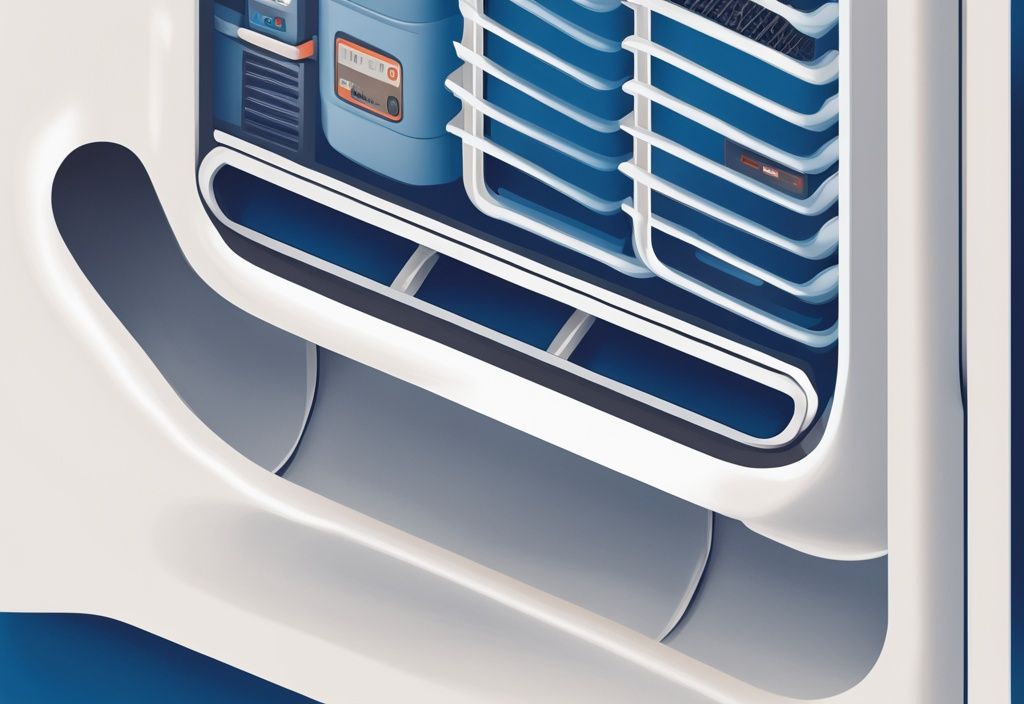
Embracing these new coolants can help you keep your AC running smoothly while also doing your bit for the environment.
Legal Regulations on Coolant Use
As environmental concerns grow, laws and regulations are evolving to control the types of coolants that can be used. Here’s how these changes affect the AC industry and you:
- Phasing Out Harmful Coolants: Out with the old, harmful coolants and in with the new, sustainable ones.
- Compliance Requirements: Manufacturers must adhere to strict environmental standards, ensuring coolants are safe and eco-friendly.
- Consumer Awareness: Regulations are pushing for better labeling and education on coolant disposal and use.
- Incentives for Green Choices: Governments may offer perks for using or developing eco-friendly coolants, encouraging more people to make the switch.
Staying informed about these regulations ensures you remain compliant and contribute to a greener planet. By choosing the right coolants and following proper practices, you can make a significant positive impact on the environment.
Conclusion
Understanding the intricate relationship between coolant and AC performance is paramount for vehicle maintenance. While coolant, or antifreeze, doesn’t directly influence the air conditioning system, its role in the overall engine cooling system is indispensable for the AC to function correctly.
Regular maintenance of your vehicle’s cooling system is essential to prevent breakdowns and ensure both the engine and AC operate efficiently; for more tips on keeping your car in top shape, check out these vehicle maintenance tips. This includes maintaining proper coolant levels, routinely checking for leaks, and ensuring that all components such as the cooling fan and radiator are in optimal working condition.
Maintaining correct coolant levels not only helps in preventing engine overheating but also supports the AC system by allowing it to efficiently expel heat generated from the engine.
When coolant levels are low, the engine can overheat, leading to the automatic shutdown of the AC compressor in some vehicles to prevent further damage.
Addressing issues promptly is another critical aspect. Symptoms of coolant-related AC problems, such as frequent compressor shut-offs or intermittent cooling, should be dealt with promptly to avoid worsening the situation. If you notice your portable AC leaking water, it could also be a sign of a related issue that needs attention.
Regularly checking and topping off coolant levels, using the manufacturer-recommended coolant, and ensuring efficient functioning of the cooling system through routine maintenance are practices that help prevent many common AC problems.
Moreover, advances in eco-friendly coolants and adherence to legal regulations enhance the sustainability and efficiency of both the coolant and AC systems. Proper disposal or recycling of used coolant is also essential to minimize environmental impact.
Through a comprehensive understanding and proactive approach, vehicle owners can ensure their climate control systems are reliable and efficient year-round.
FAQ: Does Coolant Affect AC?
Can low coolant levels affect my car’s AC?
– Absolutely. When your coolant levels drop, it can make your engine overheat. This often causes the AC compressor to shut off to protect your engine. When this happens, your AC’s performance and cooling efficiency suffer.
How do I know if my AC issues are related to coolant?
– Look for frequent compressor shut-offs and inconsistent cooling. These signs, coupled with any indication of engine overheating, likely point to low coolant levels affecting your AC.
Is it safe to drive my car if the coolant is low but AC still works?
– Not a good idea at all. Low coolant can lead to engine overheating and severe engine damage. Even if your AC seems to work fine now, it’s not worth the risk.
Can I fix coolant-related AC problems myself?
– Sure, topping off your coolant levels is something you can handle. But if the problem persists or seems complicated, it’s best to have a professional mechanic take a look to avoid making things worse.
What is the best way to maintain coolant levels for optimal AC performance?
– Regular maintenance is key. Check and top off your coolant levels regularly, use the coolant recommended by your vehicle’s manufacturer, and keep an eye on your cooling system’s overall health. Routine inspections can save you a lot of headache down the road.
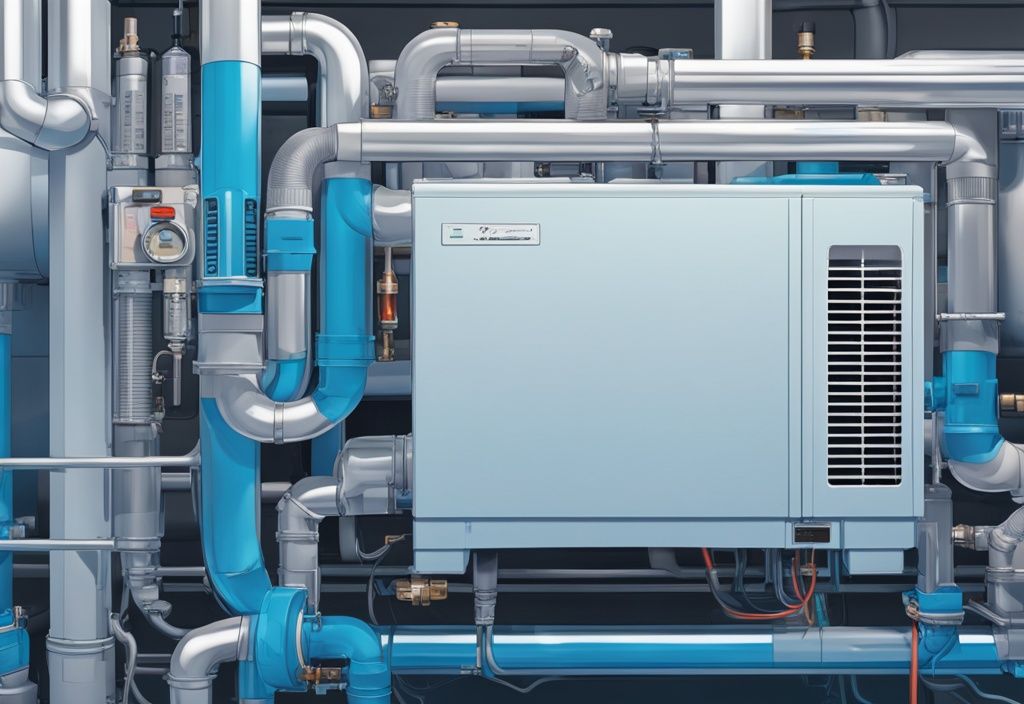

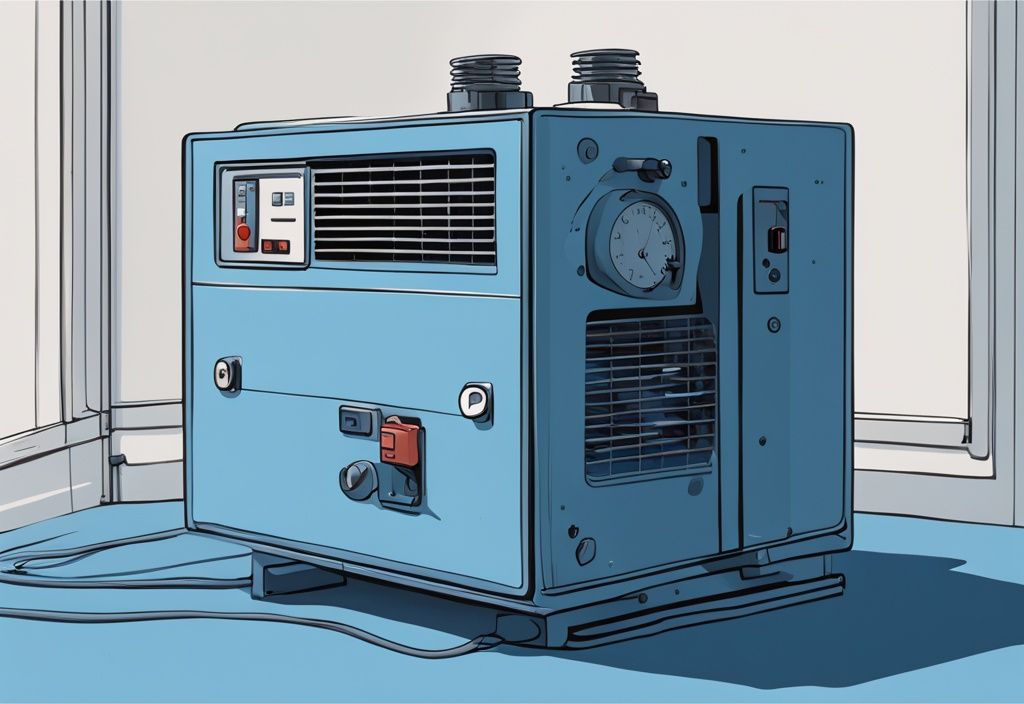
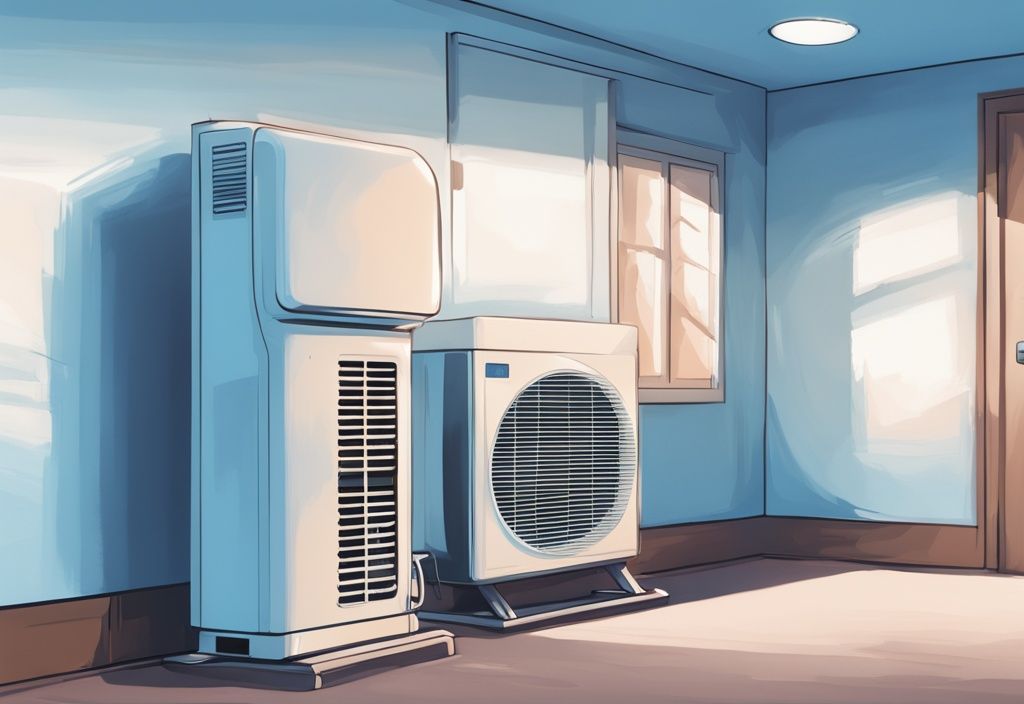
Post Comment